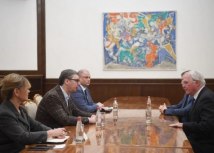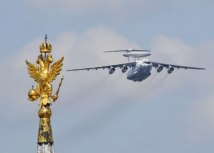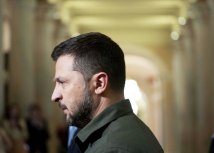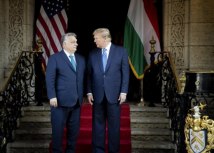Lavrov: Abkhazia, S. Ossetia different from Kosovo
Russia's FM says Moscow's decision to recognize Abkhazia and South Ossetia has no parallel with Kosovo.
Source: Ria novosti, TanjugRIA Novosti reminds that both Abkhazia and South Ossetia have been seeking independence since the early 1990s, resulting in bloody conflicts with Georgia, and that their hopes were given a new lease of life following Kosovo's unilateral declaration of independence from Serbia in February and subsequent recognition by most EU and western countries, including the U.S.
"In both cases the center started a war in Kosovo and South Ossetia, as well as Abkhazia, but the conflicts were halted in different ways - through the ruthless inhuman bombardment of Belgrade in the case of Kosovo and without punishing Tbilisi for its attacks on Sukhumi [Abkhazia's capital]," Foreign Minister Sergei Lavrov said on Tuesday.
"A ceasefire was agreed, peacekeepers were deployed and mechanisms for talks established. Belgrade has never tried to use military force or cast doubt on negotiations since 1999, but they were destroyed by Kosovo Albanians supported by the West. And it was Tbilisi that undermined the settlement mechanisms in South Ossetia and Abkhazia," the minister said.
"Therefore, drawing parallels is irrelevant here, and the difference is evident between Belgrade's policy towards Kosovo and how Saakashvili's regime behaved towards South Ossetia and Abkhazia," Lavrov said.
In a statement from New York, Russia's Ambassador to the UN Vitaly Churkin said that his country "is not planning to recognize Kosovo".
He also admitted that the Kosovo precedent had influenced Russia's decision to recognize independence of South Ossetia and Abkhazia, Interfax news agency reports.
"When the issue of recognizing Kosovo's independence was first being considered and when the deadline for considering UN Envoy Ahtisaari's plan was ending, Russia warned that developments in the Caucasus could move in a similar direction, and that is what happened," Churkin said.
Russia's UN ambassador added that Georgia's attack on South Ossetia negated UN resolutions that Moscow supported that guaranteed the territorial integrity of Georgia, according to the AP.
Churkin said Georgian President Mikheil Saakashvili's action created a new reality that justifies Russia's decision to recognize the independence of South Ossetia and Abkhazia.




